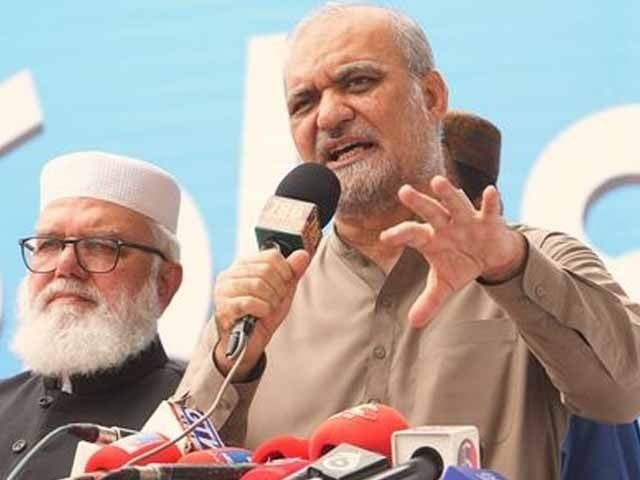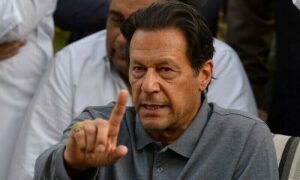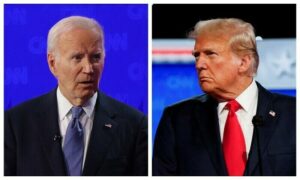Hafiz Naeem-ur-Rehman, the Amir of Jamaat-e-Islami, has issued a stern warning that if immediate demands regarding inflation are not met, protests will expand to Karachi, Peshawar, and Quetta within two days.
He emphasized that the sit-ins will persist until their demands are fulfilled, even hinting at the possibility of a march to Islamabad’s D-Chowk.
During a press conference at the ongoing sit-in at Liaquat Bagh Chowk in Rawalpindi, Hafiz Naeem highlighted the protest, now in its fourth day, as a demonstration of the public’s determination and resilience. He pointed out the burden of high electricity bills and the government’s lack of response to alleviate this issue.
Read Hafiz Naeem vows to change Pakistan’s future
He noted that a significant number of women would join the protest despite obstacles in Lahore, criticizing the government, which he described as being controlled by a single family, for creating hurdles and worsening the situation.
Hafiz Naeem condemned the unjust agreements with Independent Power Producers (IPPs), revealing that 70 to 80 percent of IPPs are non-operational due to contractual issues, with the government holding shares in 52 percent of them.
He demanded a forensic audit of the IPPs and the abolition of capacity charges, citing excessive taxes on bills. He insisted that electricity prices should be based on actual production costs.
Calls for ending government perks were made, questioning why WAPDA officers and other officials receive free electricity and fuel. Naeem suggested that the Prime Minister, Chief Ministers, and judges should be limited to 1300cc vehicles to reduce the public burden, recalling former Prime Minister Junejo’s precedent of 1000cc vehicles for all.
Naeem called for the elimination of levies on petrol and taxes on essential goods like flour, sugar, and pulses, which are crippling industries and causing unemployment. He urged all political parties to join their struggle, advising supporters to focus on government actions rather than internal party disputes.
He concluded by criticizing the government’s submission to IMF demands while ignoring their own extravagant spending, suggesting that dialogue with China could resolve issues amicably given China’s long-standing support for Pakistan.







